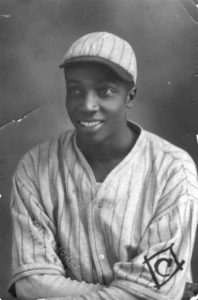
"Cool Papa"Bell
On this date in 1903, James “Cool Papa” Bell was born in Starkville, Mississippi. He was a 20th-century Black Negro League baseball player, considered by many as the fastest player in the sport.
He began his career as a pitcher/outfielder with the St. Louis Stars in 1922. Ten years later, he joined the powerhouse Pittsburgh Crawfords, a team boasting a lineup that included four future Hall of Fame members. Later, he contributed to the rosters of the Homestead Grays and the Kansas City Monarchs. For almost 30 years, “Cool Papa” Bell maintained his reputation as the fastest man in baseball. His tremendous speed on the base path and defensively in the outfield gave rise to many exaggerated stories.
Satchel Paige often told of a night when he shared a room with Bell while on the road with the Crawfords. "Bell, the story went, could turn out the light in the room and get in bed before the room got dark." Overstatement aside, Bell was undoubtedly the fastest base runner in the Negro Leagues. Coupled with his hitting ability (he batted over .400 in several seasons) and fielding talents, Bell’s speed propelled him to one of the longest active careers in the Negro Leagues. Integrating the major leagues in the 1940s came too late for him.
Nonetheless, he made significant contributions to the majors as a coach, grooming stars like Jackie Robinson for the major leagues. In 1972, Bell was inducted into the National Baseball Hall of Fame.
The Negro Baseball Leagues A Photographic History
By Phil Dixon with Patrick J. Hannigan
Copyright 1992, Jed Clauss and Joanna Paulsen
Ameron House Publishing
ISBN 0-88488-0425-2